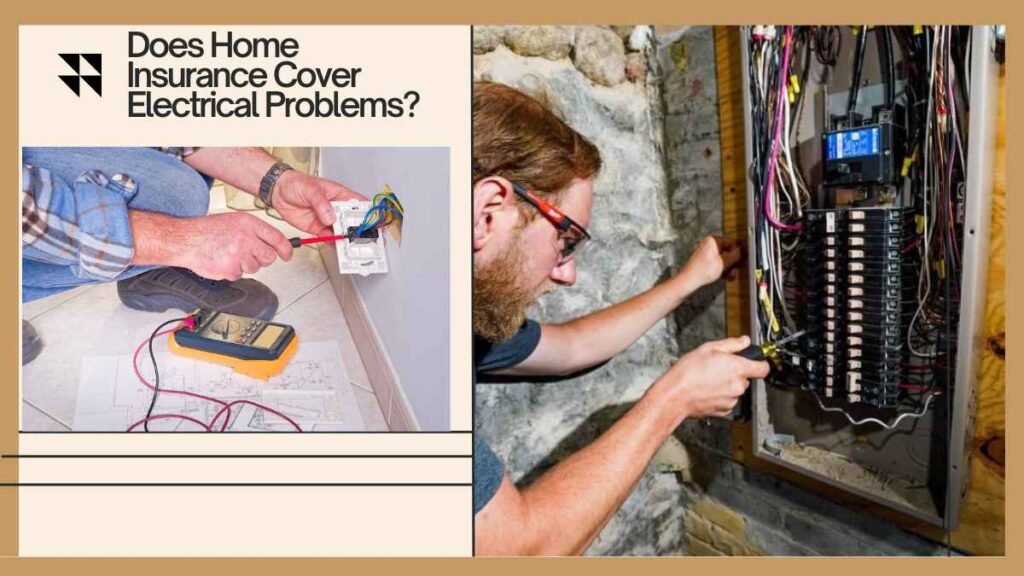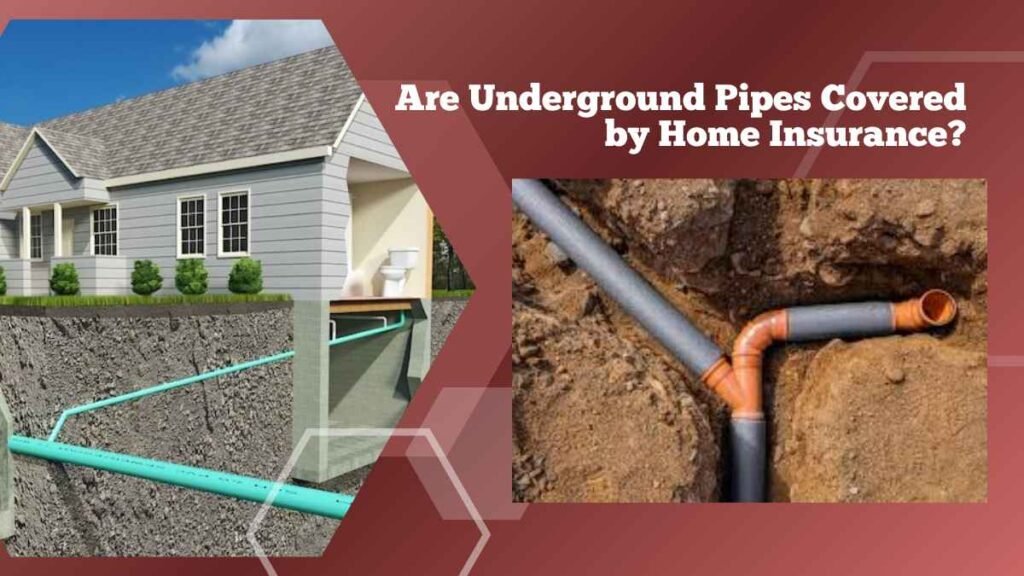Home Insurance covers electrical Problems in your house. If a problem develops, many insurance companies will reject claims made for older houses with obsolete electrical wiring. They will make you buy extra coverage known as a special rider/endorsement for aluminum or knob-and-tube wiring.
While home insurance may cover electrical issues, Coverage relies on many elements that you will have to take into account before getting house insurance. Your home insurance plan does not, however, guarantee that your house will be covered for all kinds of mishaps and crises only by that. To decide their coverage, insurance firms search for many various concerns including electrical difficulties with your house.
What kinds of electrical problems should be covered?

Many home insurance plans are only “emergency” coverage wherein only a total power outage would be covered. A complete power outage would imply that your house’s electrical system failed totally and that there were no lights, no plug outlets, and nothing electrical at all working.
Usually, these conditions follow from a localized power interruption OR an issue with the intake, metering, or mains lines into your electrical panel or consumer unit. Other house insurance plans will pay for the loss of a whole circuit.
For instance, this may be something like the house losing socket outlets. Though they are probably a bit more costly and extensive to get, these kinds of insurance policies can help you more completely should electrical difficulties arise.
Type of Electrical Wiring

Outdated houses with outdated wiring often find it more difficult to get insured. You probably have aluminum, ungrounded, or even knob and tube wiring if your house’s electrical wiring hasn’t been updated since the 1950s, 1960s, or 1970s.
Knob-and-Tube Wiring:
- From the dawn of the 1800s until the 1940s, knob-and-tube electrical wiring was the most often used kind in homes. Designed from ceramic knobs and porcelain tubing paired with rubber to insulate the wire, knob-and-tube electrical wiring is The fact that there is no grounding conductor in situ makes this rather dangerous.
- An electric appliance’s or an electric wiring system’s grounded circuit is connected to a grounding electrode or electrodes via a grounding conductor. Should water find its way into your kitchen and/or bathroom equipment, harm in these areas of your house might result. Long-term elemental exposure causes harm to this kind of circuitry.
- To find out what kind of modifications or adjustments past homeowners could have made to fit this kind of wiring, one needs to have an assessment by a qualified electrical professional.
Aluminum Wiring:
- Aluminium was chosen by construction firms in the 1960s and 1970s over copper. This became aluminium the most often utilised building material for fresh constructions. At that time, copper was much more costly than aluminum, hence many houses constructed between the 1960s and 1970s used aluminum wiring.
- Aluminum wire is 60 times more likely than copper wire to catch fire, according to the Public Safety Commission. A faster breakdown of aluminum wire than copper wire is shown. Unlike aluminum wire, copper wiring is also very fire-resistant and does not overheat.
Steps to Prevent Electrical Problems in the Home
Homeowners may minimize the possibility of electrical issues and guarantee their house stays insurable by acting early on:
- If the wiring in your house is antiquated—aluminum or knob-and-tube—you should think about changing it to contemporary, safety-conscious wire.
- Complete-house surge protectors can stop power surges from destroying your electrical systems and devices.
- Make sure a professional, insured electrician using local building regulations completes any electrical work.
- Plan frequent electrical checks to identify any problems before they become significant ones. This will also enable your house to remain compliant with your insurance policy needs.
When Does Homeowner’s Insurance Cover Electrical Problems?
Usually covering most issues, including appliance malfunctions, faulty electrical outlets, and power surges, homeowner’s insurance will also Though the kind of wiring in your house determines whether or not your homeowner’s insurance provider approves coverage. Their coverage depends on the age of your house and the kind of electrical wiring it possesses.
Your house is more likely to have better coverage long-term and have safer electrical wiring if it is current with copper wire. Should your house still include antiquated electrical wiring, you will most certainly be obliged to get a separate special rider to be covered by your homeowner’s insurance.
Your policy is now registered with an insurance rider for an extra premium due. This extends coverage to extra areas of your homeowner’s insurance that may not be covered initially and With this kind of coverage, you will also most certainly pay more for premiums.
Having an examination of your house and replacing any antiquated electrical wiring that could have been utilized to first construct your house can help you get the greatest coverage possible from your homeowner’s insurance policy.
How much of that would be the insurer’s responsibility?
Should the insurance company pay full price for a complete rewire or should they just be responsible for half of that cost, If a wiring system averages 50 years and yours has had 25 years of usage?
When looking for home insurance, the key is to let the insurers know your requirements and expectations. Usually, they will locate a policy that fits you and you will both know your responsibilities under the one you decide upon.




